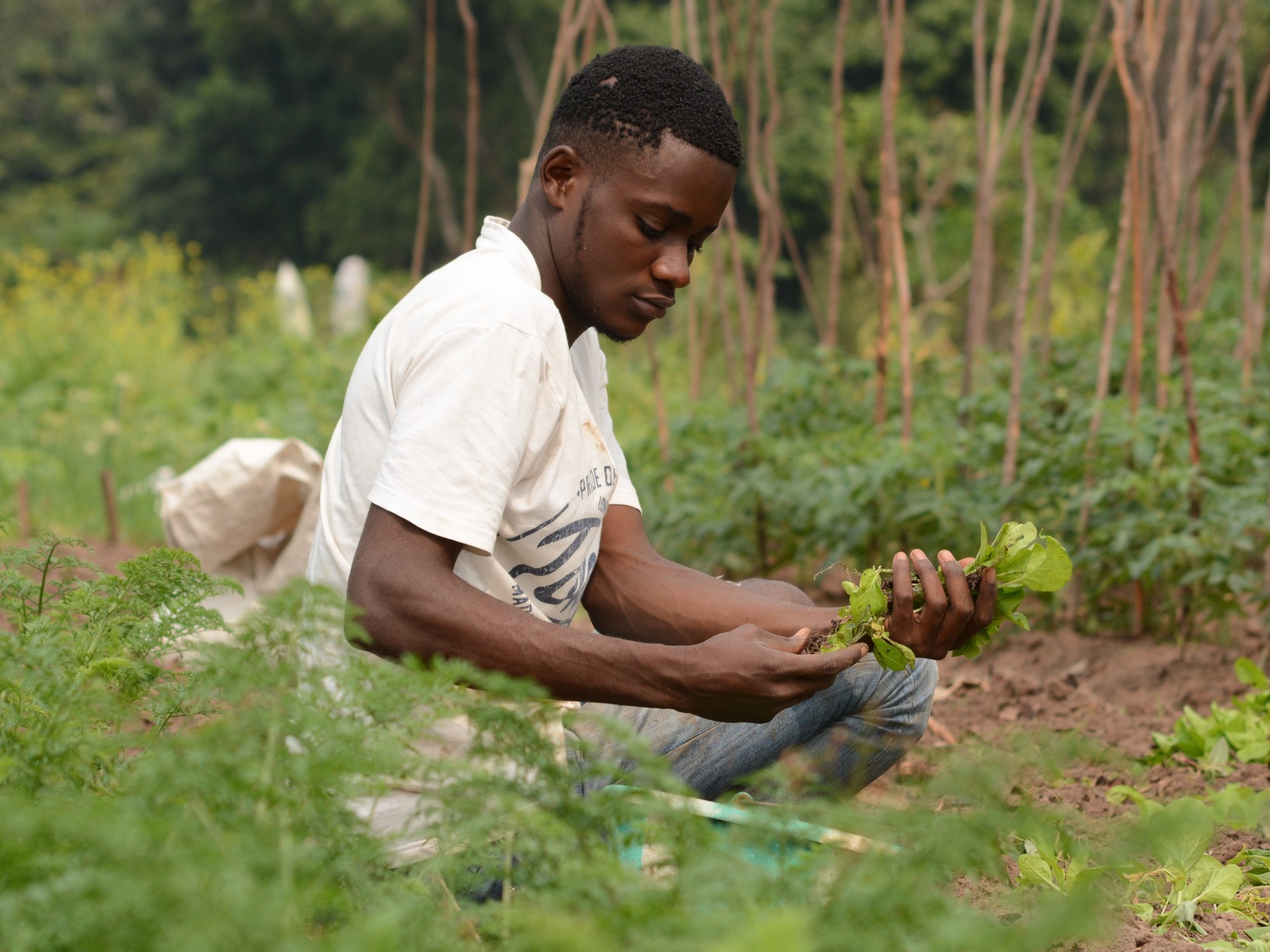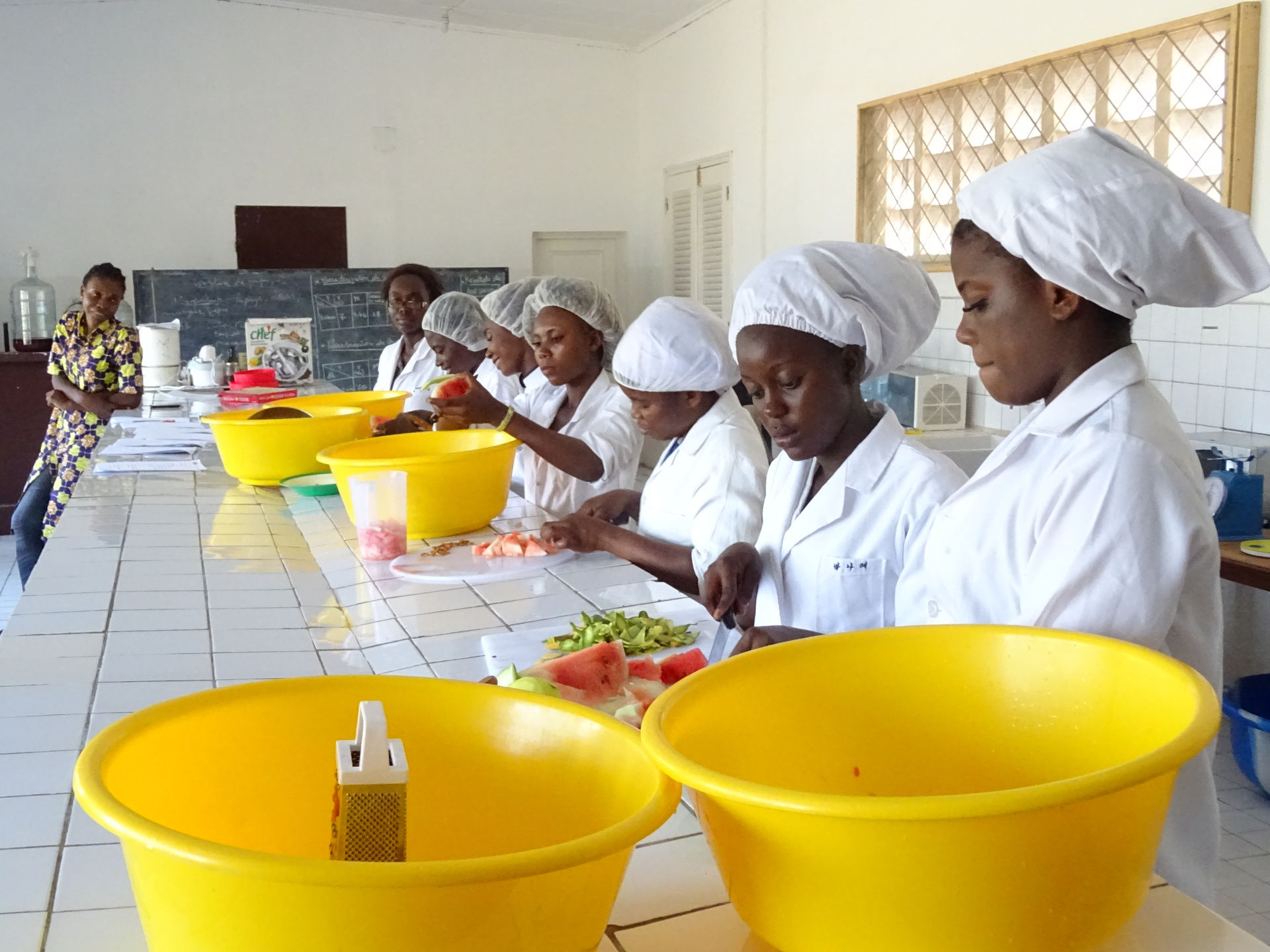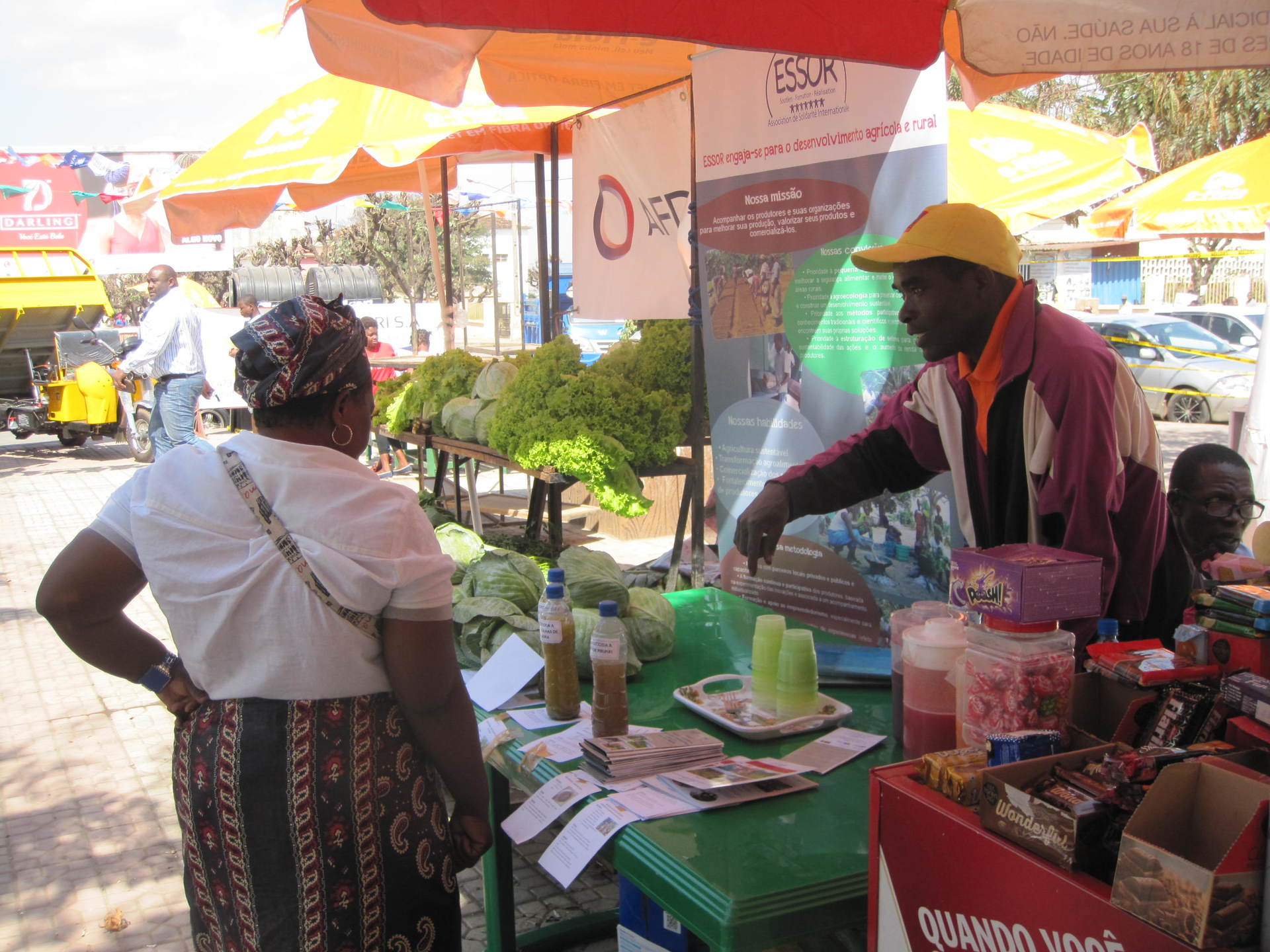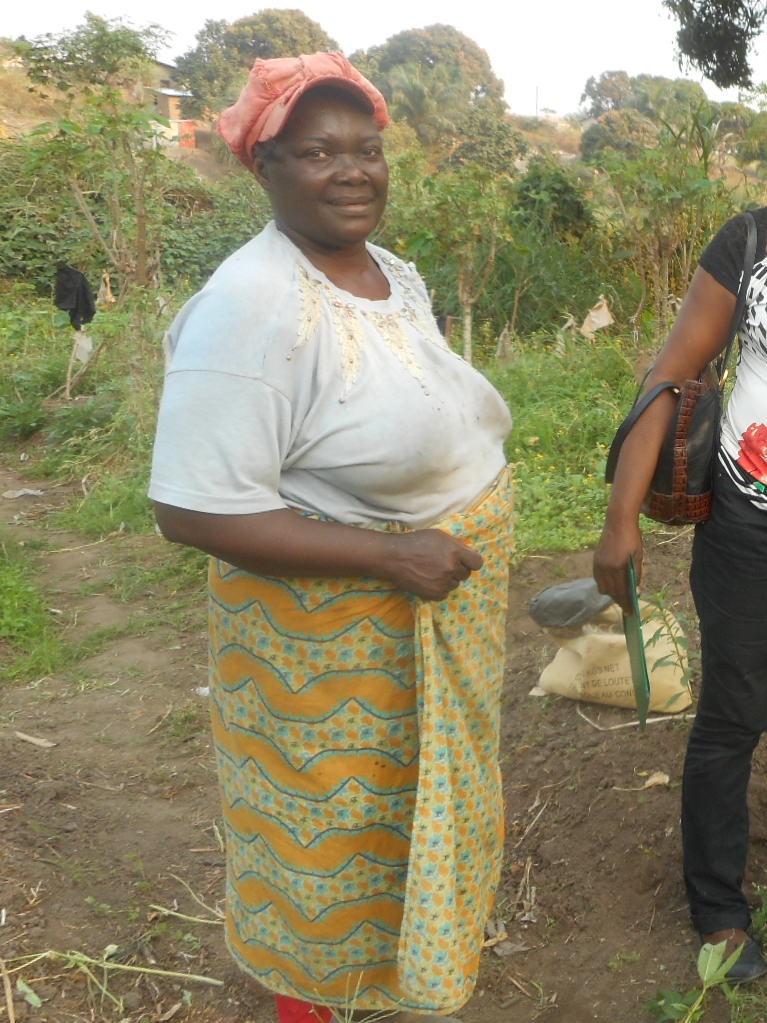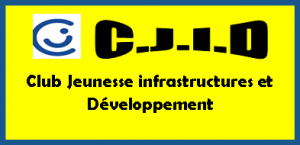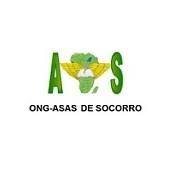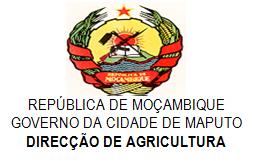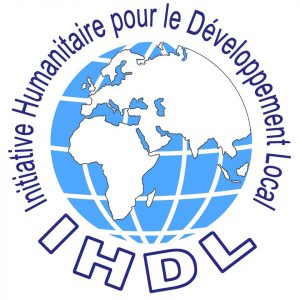

Contribute to improving the income of producers, by setting up sustainable supply chains on the outskirts of 5 African cities.
Places of intervention
The world urban population is now largerthan the rural population: 66% in Congo, 43% in Guinea Bissau, 35% in Mozambique, and 23% in Chad (World Bank, 2017). Urban agriculture plays an important role in several areas: socio-economic (providing employment), environment (green space, improving air quality), public health, social cohesion and gender.
In the peri-urban areas of the large cities in which ESSOR operates, there is significant agricultural potential, but problems persist: insufficient supervision, excessive use of chemical products, estate pressure, difficulties in adding value to local products compared to imported products, etc.
Increasing agricultural productivity is one of the priorities of the governments of these 4 countries in order to achieve food self-sufficiency, even though populations are growing and the effects of climate change are negatively impacting agriculture and threatening food security.
The challenge is therefore to reinforce the expertise of producers through more productive, more remunerative and more environmentally friendly practices, and to facilitate the structuring of market gardening sectors.
Our engagements
Supporte market gardeners towards agroecological production systems
Structure the market gardening and artisanal agri-food sectors
Promote sustainable territorial food systems
Strengthen the capacities of local actors in order to make activities viable and influence agricultural public policies
The project in action
- Train and guide producers (market gardeners and processing units) through ESSOR's Participatory Agricultural and Agro-Food Training methodology
- Experiment with new ecological practices and organise exchanges of experience: manufacturing biopesticides, natural fertilisers, crop diversification, etc
- Develop agro-food processing units for agricultural products
- Market vegetables and processed products, with labelling according to zones
- Organise awareness-raising events on "local consumption" and sustainable food
- Organise technical/management training for local actors (Producers' Organisations, partner NGOs, technicians from state agricultural services)
- Lead multi-stakeholder consultation forums on the challenges of peri-urban agriculture
- Capitalize, develop and disseminate technical guides / practical manuals
The manufacture and marketing of agroecological inputs (biopesticides, biofertilisers, etc.). The development of sectors requires work on the availability of inputs, which allow for the optimisation of production. Through Participatory Agricultural Training, market gardeners are interested in sustainable agricultural practices, but as these are new, the inputs and services related to agroecology are for the most part not available locally (availability of biopesticides, organic fertilisers, etc.). Some market gardeners therefore wish to produce and sell them. Training courses on production techniques, management and sales techniques for these environmentally friendly inputs are organised for individuals or groups with an idea and the desire to turn it into an income-generating activity. They are then accompanied in the development of their business, particularly in the search for customers, and material support is provided depending on the type of activity.

